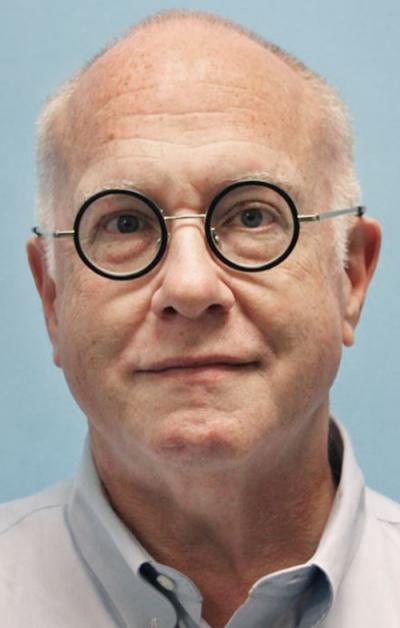

SpaceX, the leading provider of commercial launches in the United States, is subject to FAA regulations and must provide safety data prior to any attempt at launch. Last year, SpaceX performed a record 61 launches, with 34 of them primarily for the Starlink program. more
At a hearing in the Irish High Court, the US government has sought to intervene in the case between a privacy activist and Facebook. Consequently, the court has been adjourned for two weeks to give it - and other parties - time to file a motion in this regard. more
 In 2019, two organisations - Public.Resource.org of Sebastopol, California, and the Right to Know GLC of Dublin - brought suit against the European Commission for violating the fundamental rights of citizens to access the standards they are required by law to know, and attempting to protect intellectual property by copyright which lacked originality because it was, inter alia, provided by public governmental and industry sources. more
In 2019, two organisations - Public.Resource.org of Sebastopol, California, and the Right to Know GLC of Dublin - brought suit against the European Commission for violating the fundamental rights of citizens to access the standards they are required by law to know, and attempting to protect intellectual property by copyright which lacked originality because it was, inter alia, provided by public governmental and industry sources. more
 No, this topic hasn't yet been exhausted: There's still plenty more conversation we can and should have about the proposed sale of the .ORG registry operator to a private firm. Ideally, that conversation will add more information and more clarity about the issues at stake and the facts that underpin those issues. That's why I'm planning to attend today's event at American University where the sale's proponents, opponents and undecideds will have a tremendous opportunity to better understand one another. more
No, this topic hasn't yet been exhausted: There's still plenty more conversation we can and should have about the proposed sale of the .ORG registry operator to a private firm. Ideally, that conversation will add more information and more clarity about the issues at stake and the facts that underpin those issues. That's why I'm planning to attend today's event at American University where the sale's proponents, opponents and undecideds will have a tremendous opportunity to better understand one another. more
Grant Gross of IDG News report: "The U.S. Federal Communications Commission will launch an investigation into exclusive handset deals between mobile carriers and handset makers, acting FCC Chairman Michael Copps said. Copps has instructed FCC staff to open an inquiry into exclusive handset deals, he said during a speech at the Pike and Fischer Broadband Summit Thursday." more
Google and Facebook, two companies that generally stay on the other side of the Net Neutrality debate, have told reporters they will be participating in the July 12th net neutrality protest. more
 It's often a clear signal that we're in deep trouble when politicians believe they need to lend a hand and help out with regulations. A bill has been passed by the US Congress, and now signed into law, that requires the National Institute of Science and Technology to work with other agencies in developing guidelines for the use of devices that manage security vulnerabilities, patching, together with configuration and identity management. more
It's often a clear signal that we're in deep trouble when politicians believe they need to lend a hand and help out with regulations. A bill has been passed by the US Congress, and now signed into law, that requires the National Institute of Science and Technology to work with other agencies in developing guidelines for the use of devices that manage security vulnerabilities, patching, together with configuration and identity management. more
 There's been a lot of controversy over the U.S. Government's proposal to give up their supervisory role over ICANN. This lead Karl Auerbach, one of the only people ever elected to represent end-users in cyberspace, to write this letter to Congress. Karl did an excellent job as North America's first elected representative in cyberspace. He fought for things that would have made Internet governance more representative, and more transparent. more
There's been a lot of controversy over the U.S. Government's proposal to give up their supervisory role over ICANN. This lead Karl Auerbach, one of the only people ever elected to represent end-users in cyberspace, to write this letter to Congress. Karl did an excellent job as North America's first elected representative in cyberspace. He fought for things that would have made Internet governance more representative, and more transparent. more
 Over the past year, discussions around artificial intelligence (AI) have saturated media and policy environments. Perspectives on it vary widely: from boosterist narratives, which posit the limitless potential of AI-powered technologies to help overcome social inequalities and accelerate industrial development, to apocalyptic framings, which suggest that a (speculative) 'artificial general intelligence' could make humans extinct. more
Over the past year, discussions around artificial intelligence (AI) have saturated media and policy environments. Perspectives on it vary widely: from boosterist narratives, which posit the limitless potential of AI-powered technologies to help overcome social inequalities and accelerate industrial development, to apocalyptic framings, which suggest that a (speculative) 'artificial general intelligence' could make humans extinct. more
 Artificial Intelligence, AI, is often portrayed and perceived as just one more innovative stage in a long line of ever more sophisticated and powerful tools that humans use to survive and prosper. AI is different! As its name states, its ambition and goal is not to be just another tool but to introduce an artificial (digital) intelligence that is free from the weaknesses humans confront when doing some tasks. more
Artificial Intelligence, AI, is often portrayed and perceived as just one more innovative stage in a long line of ever more sophisticated and powerful tools that humans use to survive and prosper. AI is different! As its name states, its ambition and goal is not to be just another tool but to introduce an artificial (digital) intelligence that is free from the weaknesses humans confront when doing some tasks. more
 On New Year's Eve 2008 I felt compelled to respond to the stories being written about the Death of VoIP which lead to my recent blog post: VoIP is NOT Dead!. Since then, I've enjoyed many of the conversations that have continued to take place in the comment sections of a number of blogs, including this one. My belief is the future is unwritten and if the conditions are right people will return to the space. But we need to embrace innovation and change and encourage people to be disruptive. What follows is a continuation of the conversation. more
On New Year's Eve 2008 I felt compelled to respond to the stories being written about the Death of VoIP which lead to my recent blog post: VoIP is NOT Dead!. Since then, I've enjoyed many of the conversations that have continued to take place in the comment sections of a number of blogs, including this one. My belief is the future is unwritten and if the conditions are right people will return to the space. But we need to embrace innovation and change and encourage people to be disruptive. What follows is a continuation of the conversation. more
 The Eastern Caribbean island of Grenada has been selected as the venue for the fifth regional meeting of the Caribbean Internet Peering and Interconnection Forum, CarPIF, set for June 12 to 13. The annual international event, which draws Internet giants like Facebook and Google to the region, is focused on developing the Internet in the Caribbean by improving policy and building relationships between network operators and content providers. more
The Eastern Caribbean island of Grenada has been selected as the venue for the fifth regional meeting of the Caribbean Internet Peering and Interconnection Forum, CarPIF, set for June 12 to 13. The annual international event, which draws Internet giants like Facebook and Google to the region, is focused on developing the Internet in the Caribbean by improving policy and building relationships between network operators and content providers. more
 Ask ten people what privacy is, and you'll likely get twelve different answers. The reason for the disparity is that your feelings about privacy depend on context and your experience. Privacy is not a purely technical issue but a human one. Long before computers existed, people cared about and debated privacy. Future U.S. Supreme Court Justice Louis Brandeis defined it as "the right to be left alone" in 1890. Before the Web became a ubiquitous phenomenon, people primarily thought of privacy in terms of government intrusion. more
Ask ten people what privacy is, and you'll likely get twelve different answers. The reason for the disparity is that your feelings about privacy depend on context and your experience. Privacy is not a purely technical issue but a human one. Long before computers existed, people cared about and debated privacy. Future U.S. Supreme Court Justice Louis Brandeis defined it as "the right to be left alone" in 1890. Before the Web became a ubiquitous phenomenon, people primarily thought of privacy in terms of government intrusion. more
 In response to Russia's horrific invasion and war against the Ukrainian nation ordered by Dictator Putin that will live in infamy, an array of nations, organizations, and companies have responded to shun and shut off Russia in every possible manner. The actions include no-fly zones, removal from ICT network services, and essentially universal declarations of condemnation. For the first time ever, all Russian proposals to the International Telecommunication Union (ITU) quadrennial standards body plenary known as the WTSA have been "bracketed"... more
In response to Russia's horrific invasion and war against the Ukrainian nation ordered by Dictator Putin that will live in infamy, an array of nations, organizations, and companies have responded to shun and shut off Russia in every possible manner. The actions include no-fly zones, removal from ICT network services, and essentially universal declarations of condemnation. For the first time ever, all Russian proposals to the International Telecommunication Union (ITU) quadrennial standards body plenary known as the WTSA have been "bracketed"... more
"I urge you: Do not give a gift to Russia and other authoritarian nations by blocking this transition," Lawrence Strickling, administrator of the U.S. Commerce Department's National Telecommunications and Information Administration, said on Wednesday at a Senate Judiciary Subcommittee Hearing Held on IANA Transition. more